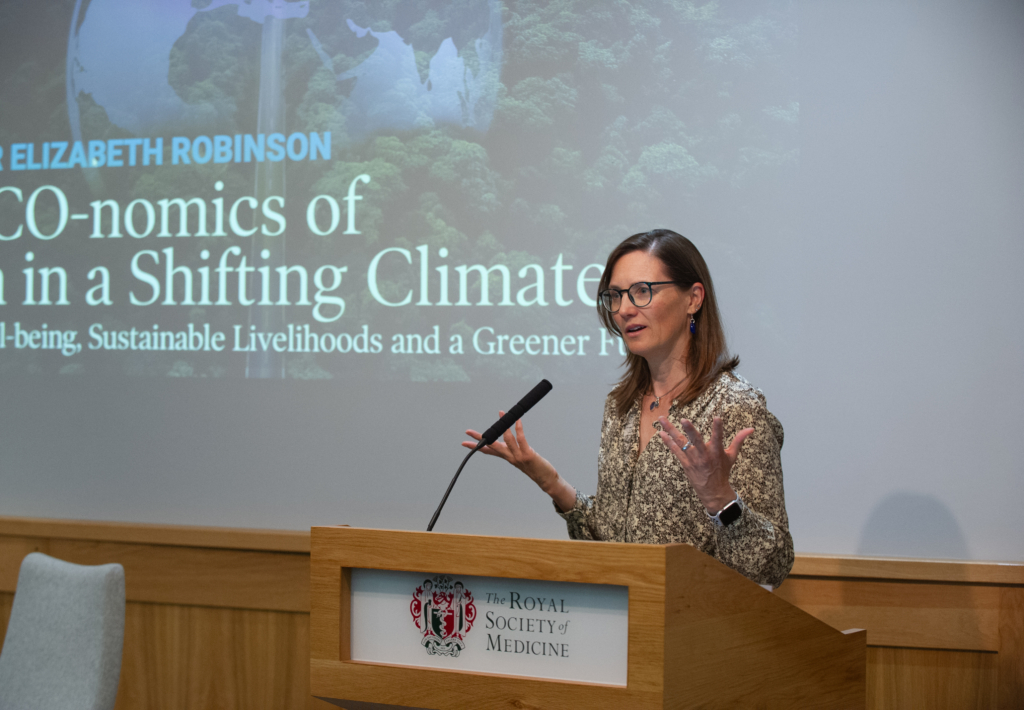The Office of Health Economics recently hosted its 2023 Annual Lecture, featuring Professor Elizabeth Robinson, a leading Climate Change Economist. During her presentation, Robinson emphasized the importance of adopting a One Health approach to achieve a climate-resilient future. Her lecture focused on the critical intersection between health and climate, highlighting how improving health systems can play a pivotal role in addressing climate change.
Key Insights:
- If healthcare were a country, it would rank as the fifth-largest global carbon emitter, making the sector’s environmental impact a significant challenge.
- Tackling both healthcare’s carbon footprint and the effects of climate change on global health is crucial for sustainable development.
- Climate change is worsening food insecurity and health vulnerabilities, especially in marginalized populations, with data showing that a 1% temperature rise results in 30 million more people facing food insecurity.
Professor Robinson also shared findings from the Lancet Countdown, which tracks the relationship between climate change and health outcomes. The data indicates the urgent need for cross-sector cooperation to strengthen health systems and mitigate the adverse effects of climate change.
By focusing on preventative measures—such as promoting plant-based diets and reducing air pollution—Professor Robinson argued that policy changes can lead to both healthier populations and a more sustainable planet.


